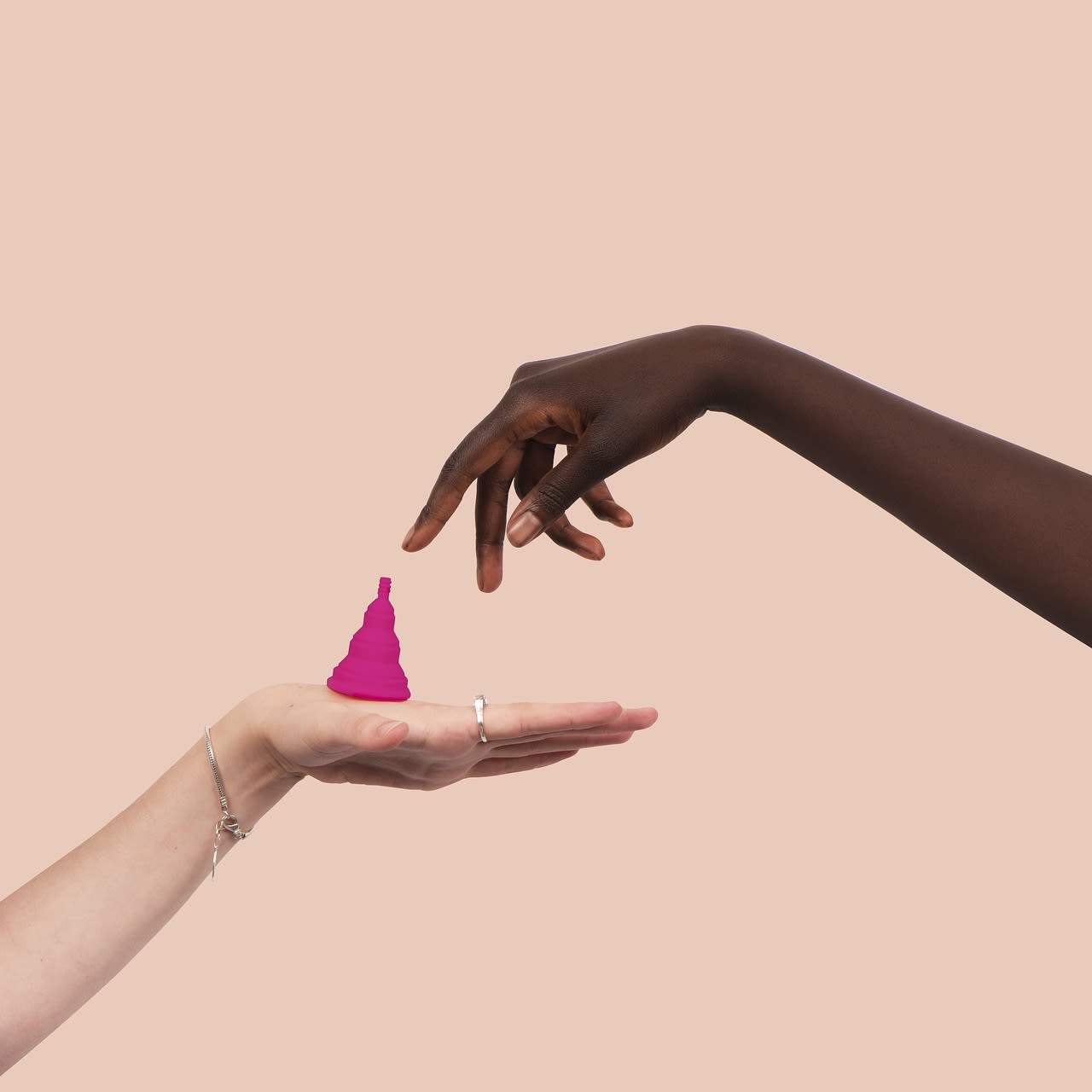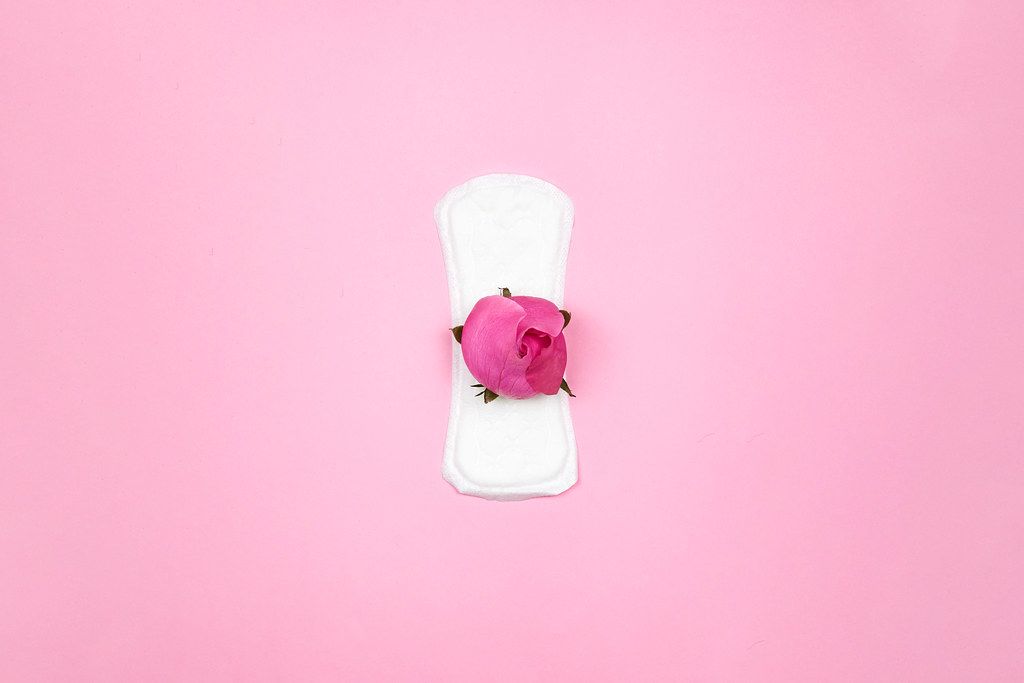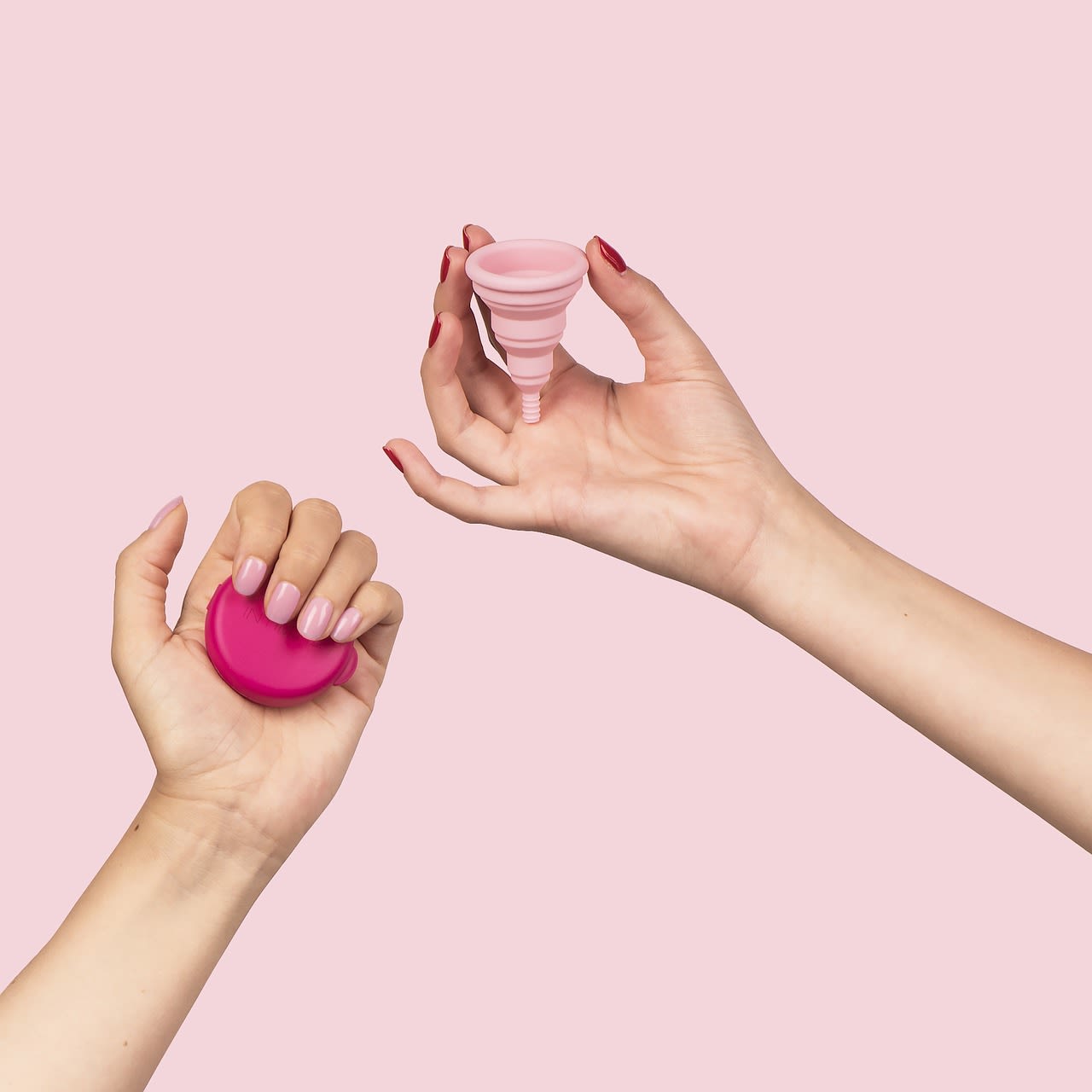Period Poverty and Stigma
What it's like being a woman who bleeds,
and someone who can't afford the help they need
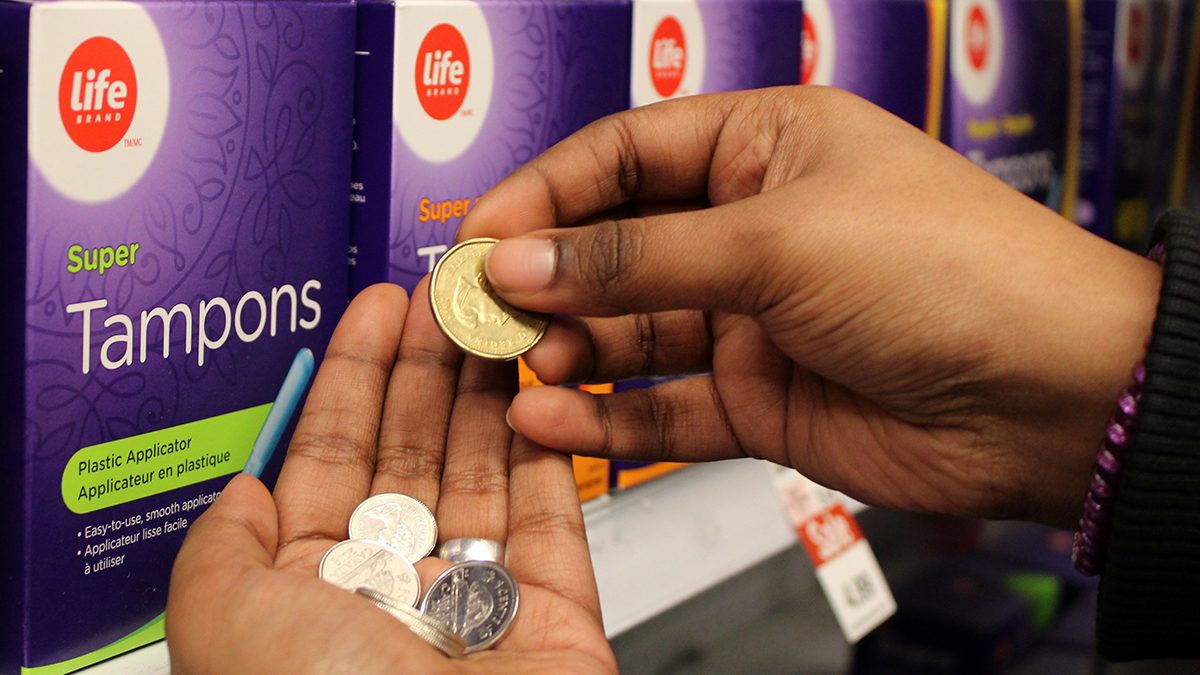
What are periods?
Periods, for the most part, are hell.
Ask any woman, or female-identifying person, and she will tell you the same.
But, if you want a correct, scientific answer, periods are this:
"Menstruation — aka having your period — is when blood and tissue from your uterus comes out of your vagina. It usually happens every month."
Planned Parenthood (What is Menstruation? | Get Facts About Having Your Period (plannedparenthood.org))
The menstrual cycle helps you prepare for pregnancy every month. It also makes you have a period if you're not pregnant.
Your menstrual cycle and period are controlled by hormones like estrogen and progesterone.
In your uterus, there is a lining where, if an matured egg is fertalised during conception (in the fallopian tube), the lining catches the egg and therefore starts a pregnancy. The lining within the uterus is thick and spongy, and provides the nutrients needed for a pregnancy to grow.
If pregnancy doesn’t happen, your body doesn’t need the thick lining in your uterus. Your lining breaks down, and the blood, nutrients, and tissue flow out of your body through your vagina.
Congratulations, it’s your period!
If you do get pregnant, your body needs the lining — that’s why your period stops during pregnancy. Your period comes back when you’re not pregnant anymore.
Got it? Let's move on.
Roughly half of the female population - around 26% of the global population - are of reproductive age. Most girls start their periods at the start of puberty - around age 12. If you don't have your period by the age of 16, it's advised to check with a medical professional. Most women menstruate each month for about two to seven days. - UNICEF, 2018
And whilst so many women, girls, and female-presenting and bodied people experience the 'joys' that comes with a period, period poverty and stigma still exists.
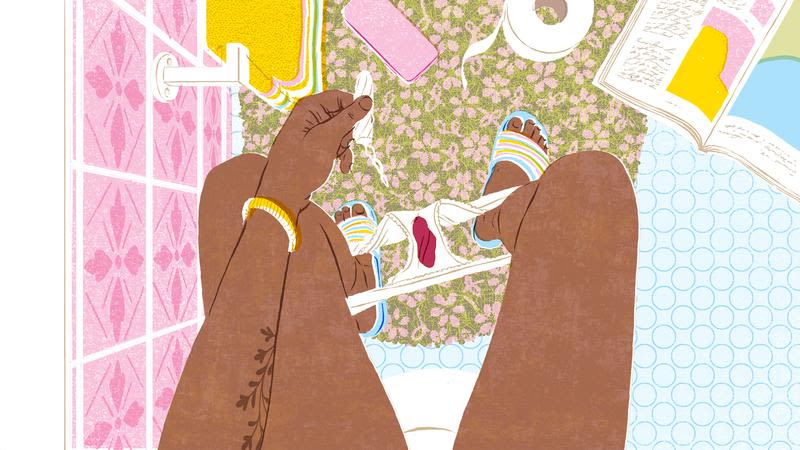
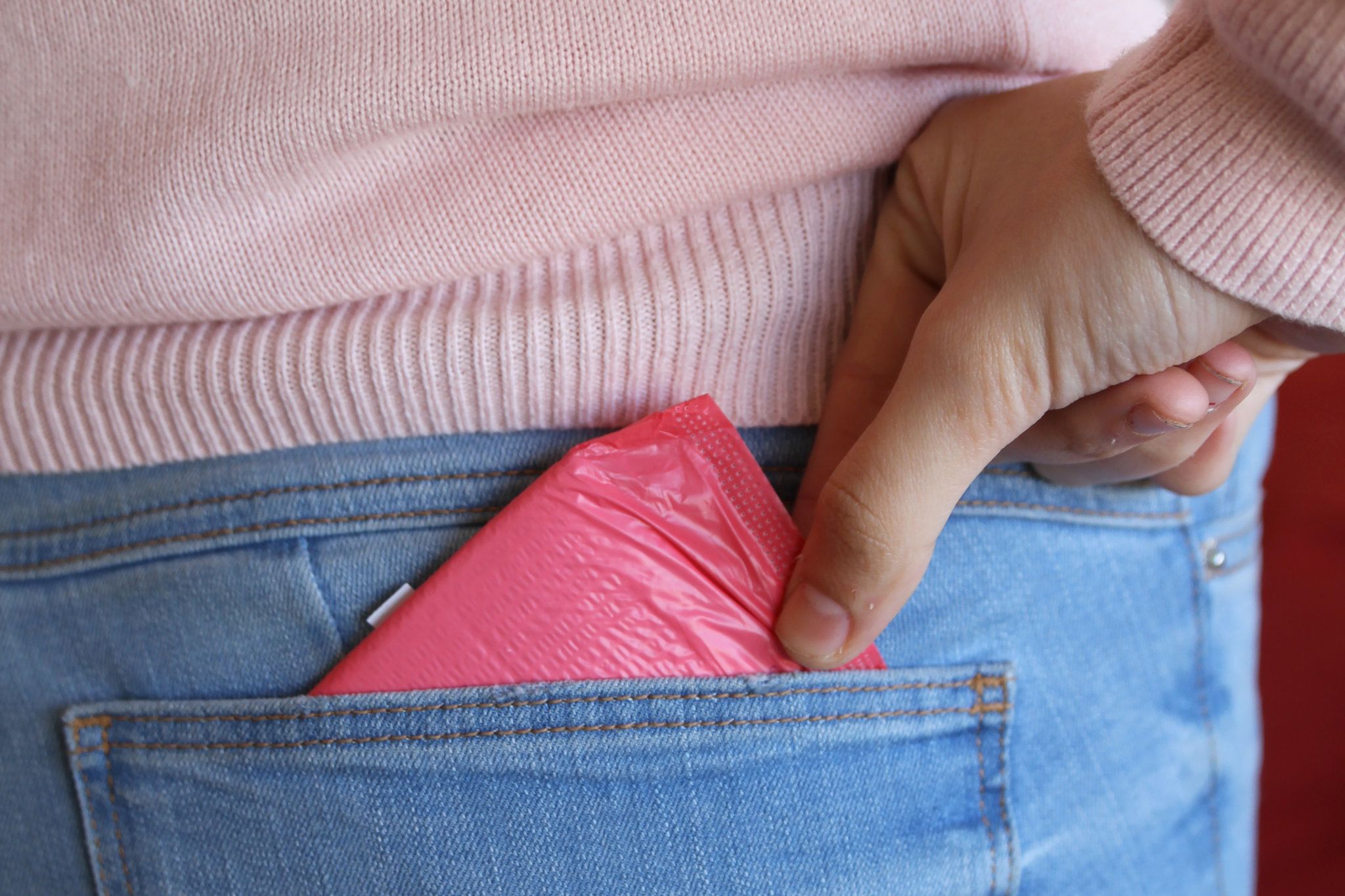
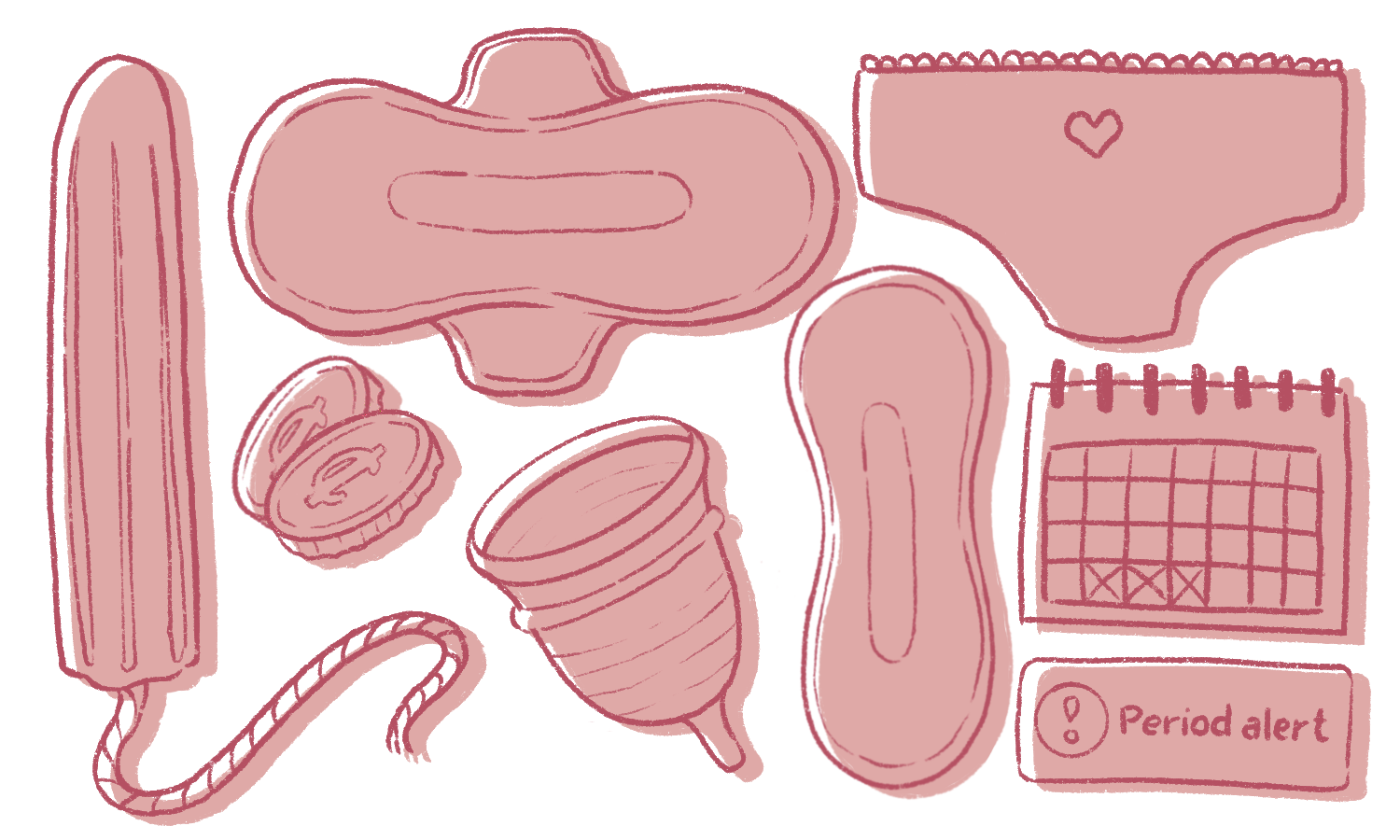
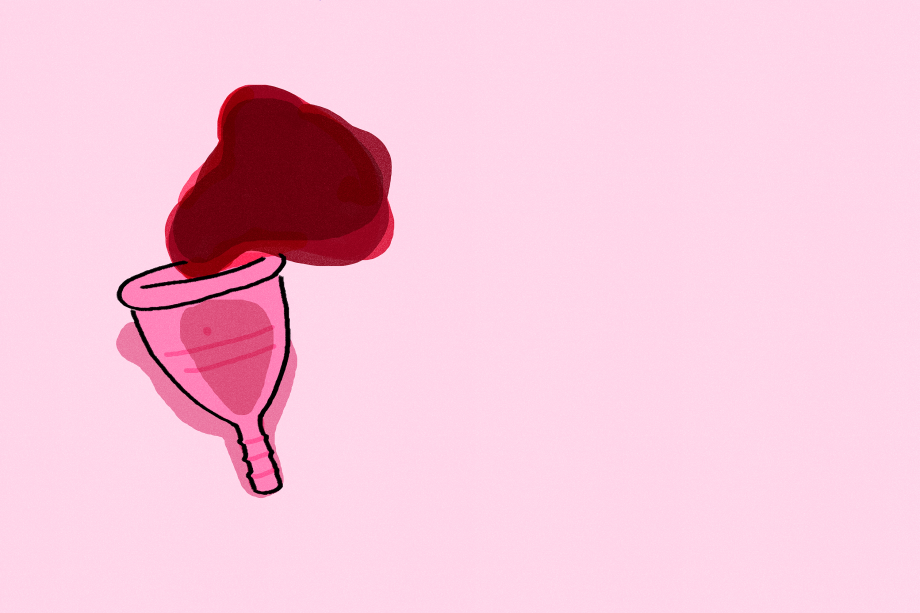
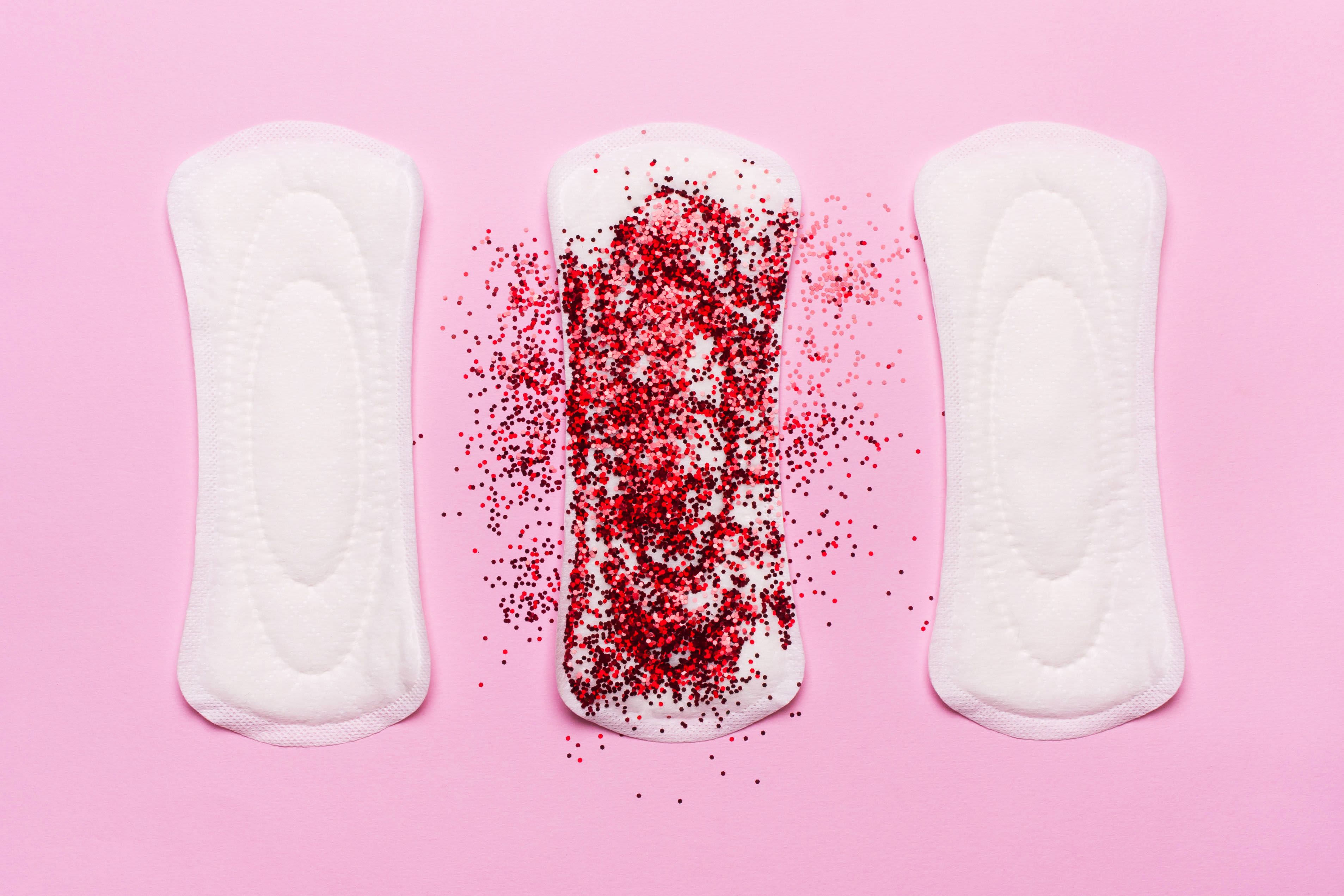
About Freedom4Girls
Tina Leslie is the Founder and Project Coordinator for Freedom4Girls (F4G).
F4G have been around for about seven years, and Tina herself started the charity in Kenya, through small projects after visiting the country.
There, she found that 60% of girls and women don't have access to any menstrual protection or period products, as well as education, so she decided that she wanted to work on that.
Tina said: "The reason why I wanted to work on this was because I remember when I was 11 years old, and I started my period on an exchange trip in France.
"I was with a family of four boys, and I used toilet paper as my pad and slept on the floor to not ruin their bedsheets.
"That was 40 years ago, but I still remember it like it was yesterday."
Tina's experience with her first period, on an exchange trip in France.
Now, F4G produce reusable, washable period products, and deliver menstrual health management education in Kenya, where the story of F4G all started.
In 2017, one of Tina's colleagues opened her eyes to the fact that period poverty was a prevalent issue in the UK.
Through a series of events, Tina found herself on shows such as Women's Hour and Good Morning.
Tina said: "We do lots of deliveries, and work with over 100 organisations in the Leeds area to deliver period products - we also deliver education programmes.
"We offer sewing workshops, we have Black Women's Menstrual Health research going on, and we do a small projects in Uganda (among many other things).
"We're still only very small, but we do a lot of things.
"We want to normalise periods in any setting - be it the workplace, school setting, or anything else."
Who is Tina Leslie and who are Freedom4Girls? (Video credit to Hannah Crofts on YouTube)
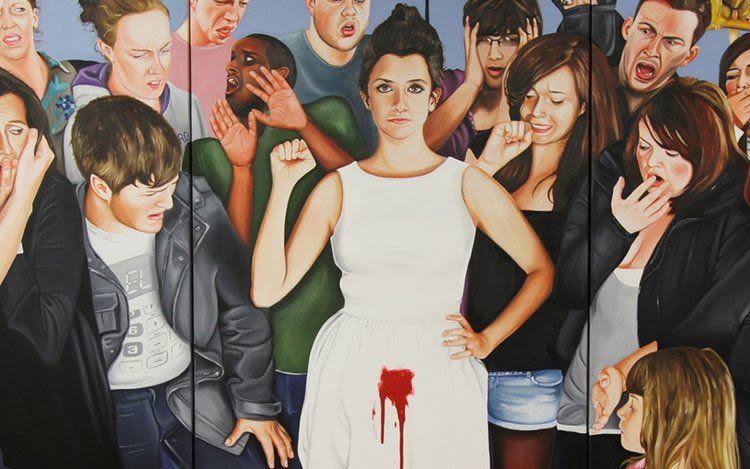
About bloodygood Period
Terri Harris is the Menstrual, Sexual and Reproductive Health Education Manager at bloodygood Period (BGP).
Terri runs the education sessions at BGP, which provide sexual, reproductive and menstrual health education and knowledge to those who are less likely to have access to it.
She said: "bloodygood Period is a charity that fights for menstrual equity.
"For those who don't know what menstrual equity is, it is the idea that nobody should be held back or disadvantaged because they have a period."
Gabby Jahanshahi-Edlin, the founder of BGP, was working in foodbanks before she started the charity.
She realised whilst working there that there weren't any provisions for period products, and so she began the organisation to provide asylum seekers, refugees and other people who can't afford to access period products.
BGP provide their help in three ways:
- Product provision - BGP started off with Gabby collecting donations from people across England, and giving them out to refugee seekers. Now, BGP partners with over 100 community organisations, drop-in centres and food banks across the UK to provide their products.
- Normalising periods - Menstrual equity is often hard to achieve, because there is so much stigma and taboo surrounding periods and menstrual health.
Terri said: "We believe, and want others to believe, that periods are just a normal bodily, human function.
"Everybody has a period, or knows somebody who has a period."
- And lastly, educational and health programmes and workshops run by Terri herself - listen below.
What exactly Terri does at bloodygood Period.
Terri said: "BGP has grown into a much bigger charitable organisation.
"We fight for period equity because we believe that everybody deserves a 'bloody good' period."
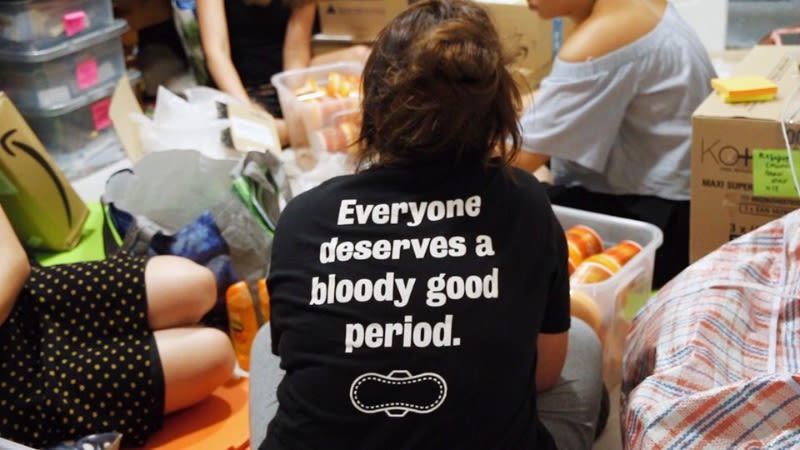
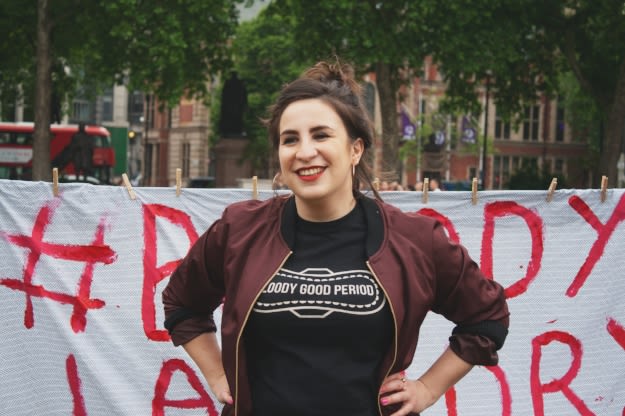
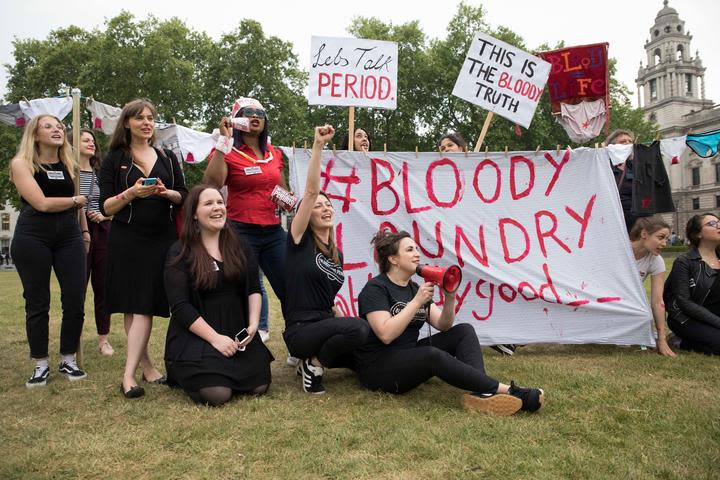
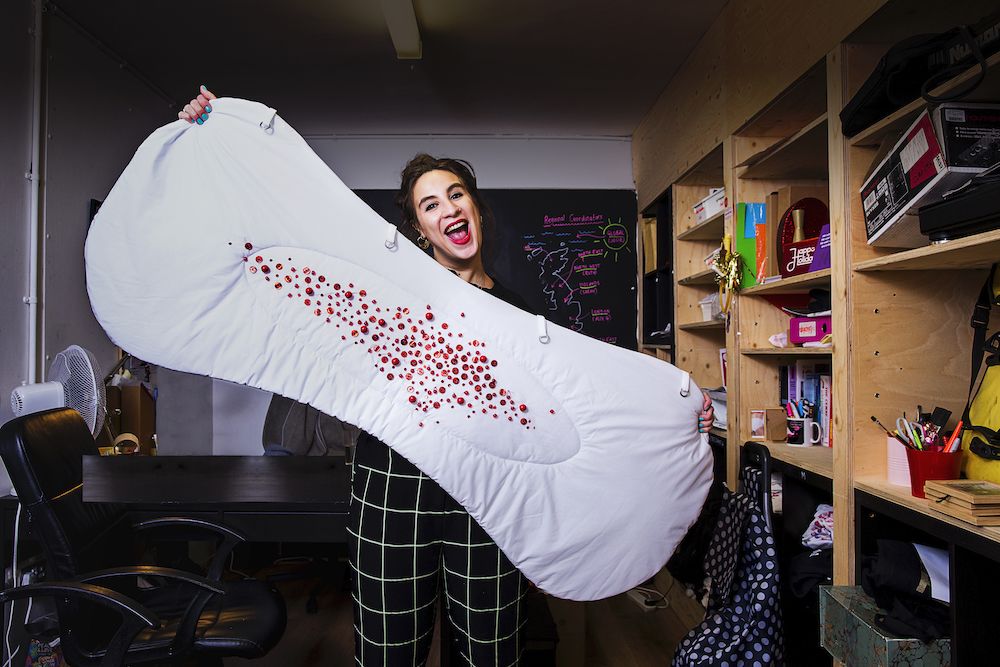
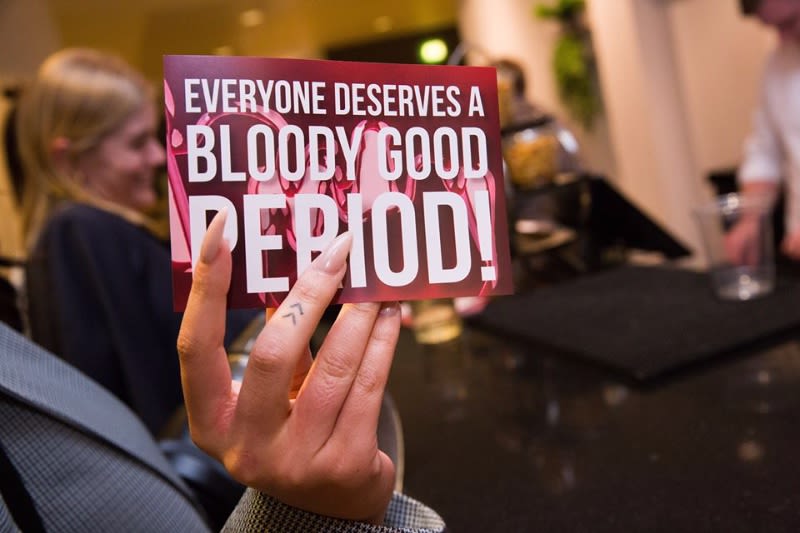
What is period poverty?
According to the Royal College of Nursing (RCN), period poverty is this.
“Can you imagine not being able to afford or access sanitary products to help manage your period? Period poverty is the lack of access to sanitary products due to financial constraints, this can be caused by a wide range of life events that negatively impact on a girl or woman’s ability to access sanitary products to manage a most intimate and regular occurrence in her life.”
- C Bagness, 2020
In essence, period poverty is the same as any other type of poverty. You can't afford the necessities you need, and in this case, it's what you need for a period.
Lack of education also falls under the period poverty umbrella, because you are lacking in the education you need when you start your period and how to best deal with it.
There are many things a woman can use if she has no period products available to her.
These can include:
- Newspaper
- Nappies
- Toilet roll
- Cotton wool
- Cotton pads
- Socks
- Plastic bags
- Used or old rags
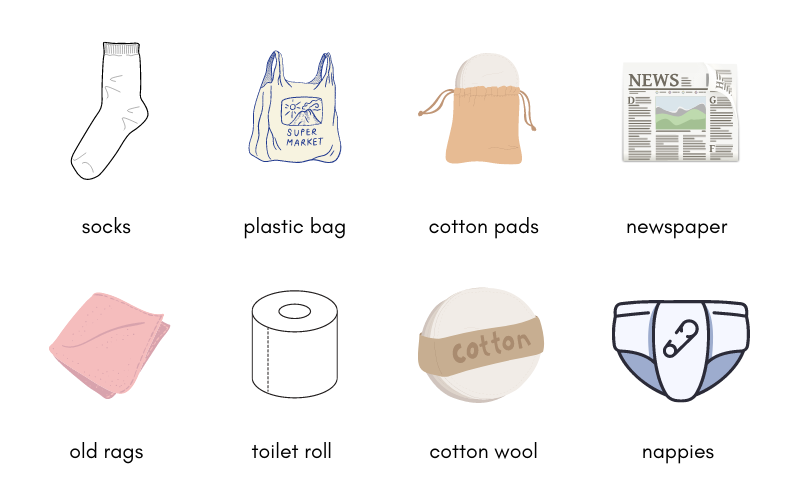
Before Covid-19, F4G were delivering around 500 packs of period products a month, in partnership with over 100 companies.
These were delivered to refugees, asylum seekers, food banks, women coming out of prison, social justice, women fleeing domestic violence - you name it, F4G has done it.
Then, F4G went from 500 packs a month, to 2,000.
On period poverty, Tina said: "There's a lot of people out there who don't have access to, or can't afford period products.
"If you can't afford food, you can't afford period products."
BGP report similar stats.
Since the start of the pandemic, BGP have delivered over 100,000 packs through their partnerships.
BGP place bulk orders through their various suppliers, and deliver them directly to their partner organisations, and through these relationships, it makes everything more sustainable, and makes sure that everyone who needs products, have them every single month.
On period poverty, Terri said: "Education especially is important.
"It's one thing I always mention as part of my workshops and my work.
"Education is just as equally important as having access to period products."
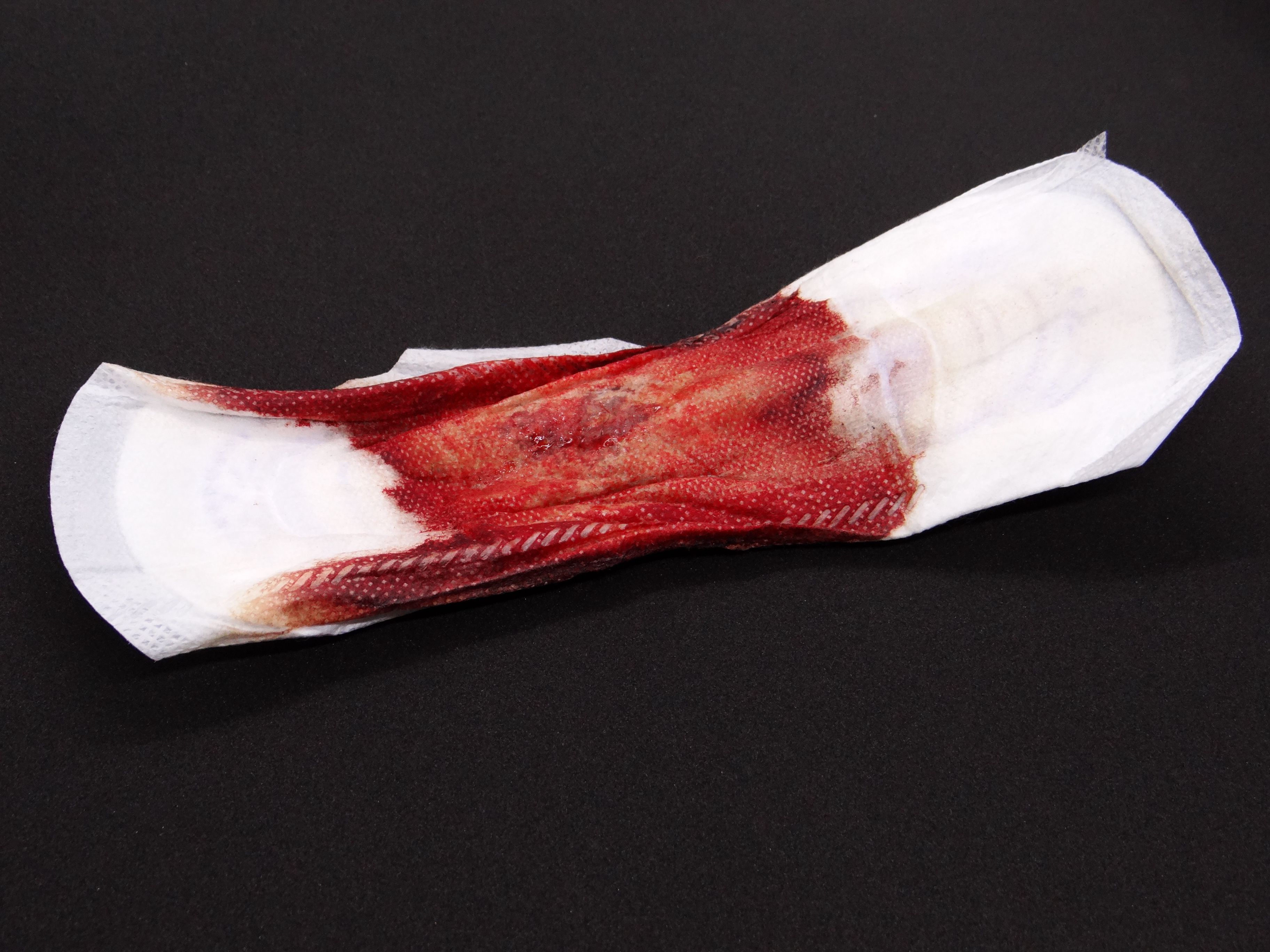
What is period stigma, and how does it form?
Period stigma can form from a variety of things.
But first, what is it?
"Also known as menstruation stigma, period stigma is a broad term for discrimination faced by people who menstruate." - Verywell Mind, 2021
Regardless of whether you face period poverty or not, period stigma is still something that a lot of women go through - regardless of their class and other factors.
According to UNICEF, misinformation and lack of basic knowledge is what leads to girls being out of school when they are on their period, and makes children and adolescents feel ashamed for bleeding.
Ultimately, period stigma and how it forms is cropped up to three things:
- Education
- Language
- Media
The education
Terri said: "Stigma has a lot to do with the lack of education.
"We always learn about the biological side of a period, but not so much how it impacts our bodies - we don't learn enough as children or adults about the menstrual cycle, the way it can change our bodies from emotional needs, to skin dryness, to vaginal discharge.
"It has such an impact on all of these things, and I think that because we don't have that knowledge, it's often really difficult to fight that stigma and taboo."
Terri's opinion on why we don't speak about periods.
Tina agrees, saying very similar to what Terri says too.
Tina said: "A lot of quality makers are men, and they just don't understand.
"When we talk about periods in school, we talk about it as a normal thing, and not a scientific thing, to try and break down those barriers.
"We've still got a long way to go."
On education, Tina said: "Girls weren't allowed to go during class to change their pads.
"We did an education class in one school, and we ended up going back to the school and telling them there was a bigger issue, and it wasn't fair.
"Girls need to go and change their pads!
"They will not be learning when they're worried about whether they're going to be leaking or not."
The school then ended up changing their policy, and what the girls do now is show a red page in their planner to say that they want to go to the toilet and alert to the fact that they're on their periods.
Tina said: "That shouldn't happen anyway, but it was something to get around the issue."
Most commonly, both women also mentioned that the type of language we use when we talk about periods needs to change, as well as the media's impact on the stigma surrounding periods.
The language
Terri said: "Periods were always so shrouded in secrecy for the longest time.
"We have all these words that we don't say, like vagina or periods, and instead use words such as sanitary or hygiene.
"All of these things make it dirty and shameful and secretive - it makes us not want to talk about it."
How Terri thinks the language we use affects how we view periods.
Tina also said: "A lot of the stigma is from the language.
"For a start, calling period products, sanitary towels. It gives it a sort of unclean feeling. The wording needs to change - it's not hygiene, it's a natural bodily function.
"Some supermarkets have changed their wording, calling them period products instead.
"We still walk across the office with our handbag in hand to go change our pad - why do we do that?
"There is still a lot of stigma - it's a big issue."
The media
For the longest time, especially in historical ads and marketing for period products, blue blood instead of red was commonly used to represent a period - and this wasn't just in period product ads.
It was also the case for nappy ads, and similar strategies, where blood was shown as blue, not as red.
So, when Bodyform released an advertisement in 2017 replacing the blue blood with red and showing a man buying period products, the campaign was incredibly well received.
What BodyForm did with this advertisement changed the world's outlook at the time on how we view periods, by using red blood instead of blue, showing a woman with blood running down her legs during a shower, and a man buying period products.
Listen to what Terri has to say about this side of period stigma here:
Terri's view on the media.
And this is what Tina has to say:
Tina's view on how the media stigmatises periods.
The Case Studies
In a report published in 2019 by Women for Refugee Women (WRW) and bloodygood Period, it shows that asylum-seeking women in the UK are prevented from accessing vital period products.
In the report, WRW spoke to 78 asylum-seeking women about access to period products as part of their research.
75% struggled to obtain period products, often for extended periods of time.
The minority of women who did not struggle had either finished their periods, or had to constantly rely on charities for period products.
'Marie', an asylum-seeking woman in Birmingham, said: "Not having enough money to buy pads was heart-breaking and stressful.
"I would enter into any public toiler to get tissues that I could use instead. I was too ashamed to ask a stranger for a pad because it's too personal.
"There was a time where I had to use my own baby's nappy as a pad. That was so degrading."
Stella, an asylum-seeker said: "Back home in the DRC, my parents would know that my period is coming and they would look after me.
"Now I am here on my own, and I don't have anyone who will take care of me.
"I tried to save the little money I had for food, so often when I got my period, I would have to go hungry.
"The government should help us asylum-seekers. We are sleeping outside; in the bus, in the park. We are not allowed to work.
"We don't have food. People don't see what we are going through, and to have to cope with your period on top of all this is too much."
Jolie claimed asylum in 2012, and she said: "When I was destitute, I relied on tissue from public toilets because I didn't have money to get my own pads.
"The stress of being destitute made my periods heavier, but I never asked her (the woman I was living with) or anyone else for pads. I was very ashamed to even tell someone that I was on my period.
"I would love to see free pads for vulnerable women: minority women and women who are destitute.
"For those of us that don't have papers, it should be something that we can access for free."
This is what Terri had to add - listen here:
Terri's addition on asylum seekers and what the government can do to help.
Their full stories, as well as others, are all available on bloodygood Period's website - you can find the full report and further statistics here.
What can we do to help?
As both Terri and Tina have mentioned, whilst there have been major changes in the way which we talk about, advertise, and help those who get periods, there is still a lot more work to be done.
What can we do in Tina's opinion.
Tina said: "We receive a lot of donations.
"We have donation stations set up in super-markets and before Covid in offices, a lot of our donations come from people like HeyGirls UK, Bodyform, people send them in the post - donations are our core business."
Terri's view on what we can do.
If you would like to get in contact with either charity, bloodygood Period and Freedom4Girls are always free and available for questions, queries, and are happily accepting donations at any point.
Let's do better to make periods less stigmatised and better funded, for a place where women will finally feel happy and confident with something that is normal.
